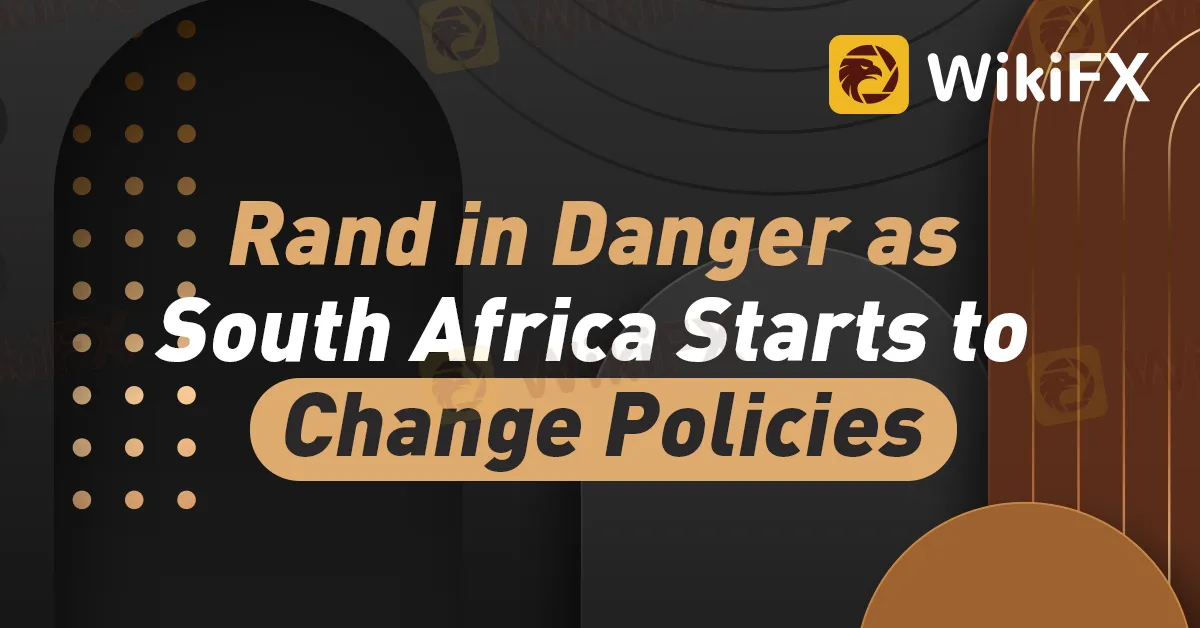简体中文
繁體中文
English
Pусский
日本語
ภาษาไทย
Tiếng Việt
Bahasa Indonesia
Español
हिन्दी
Filippiiniläinen
Français
Deutsch
Português
Türkçe
한국어
العربية
Rand in Danger as South Africa Starts to Change Policies
Abstract:The rand may become more volatile if the South African central bank changes how its monetary policy is carried out.

The rand may become more volatile if the South African central bank changes how its monetary policy is carried out.
Beginning on Wednesday night, the central bank will switch from its present deficit setup to a surplus one, allowing commercial banks to keep and earn interest on excess reserves. Similar to the “layered floor” system utilized by the Reserve Bank of New Zealand and the Norges Bank, the South African Reserve Bank will likewise implement measures to discourage banks from hoarding liquidity and so assist in maintaining an interbank money market.
The adjustment won't have an impact on the central bank's inflation objective or interest rate choices, but it may make it simpler to speculate in the rand, leading to greater price swings under pressure. Since the epidemic, the cost of shorting the South African rand has increased due to elevated ZAR-USD basis-swap rates.
The currency basis would decrease, making it more affordable to short the rand, said Michelle Wohlberg, a fixed-income analyst at Rand Merchant Bank located in Johannesburg. “Risk-off periods may become volatile as a result of this.”
The rand has been less volatile this year than a number of its peers, such as the lira, zloty, and real, despite pressure on risk assets brought on by fears about a slowdown in China, increasing global inflation, tighter policy, and Russia's conflict with Ukraine. The currency's historical correlation to the dollar has increased by 63 basis points to 14.66 percent, making it the fifth most volatile of the 23 developing-nation currencies tracked by Bloomberg.
The Reserve Bank stated that mitigating the risk would need “care and monitoring,” both during the transition to the new framework and in times of extreme market pressure, in a report that addressed worries about volatility. The first developing market economy to use the tiered-floor framework is South Africa.
It stated that the risk was considered to be “moderate” and did not pose a significant challenge to the idea of the new framework for implementing monetary policy. In contrast to mature nations that have floor-style systems, South Africa may experience the exchange rate differently due to its status as an emerging market.
According to the study, the central bank “has a lengthy track record of tolerating FX volatility” and inflation expectations are anchored, making them less vulnerable to exchange rate changes.

Disclaimer:
The views in this article only represent the author's personal views, and do not constitute investment advice on this platform. This platform does not guarantee the accuracy, completeness and timeliness of the information in the article, and will not be liable for any loss caused by the use of or reliance on the information in the article.
Read more

Big News! UK 30-Year Bond Yields Soar to 25-Year High!
Following the successful auction of 30-year government bonds by the UK, the yield on 30-year bonds surged, reaching its highest level in 25 years. This increase reflects growing concerns in the market over the government's fiscal policies and large-scale debt issuance.

Beware of Fraudulent Letters: Malaysia’s Securities Commission Issues Warning
The Securities Commission Malaysia (SC) has raised an alarm over fraudulent letters and emails falsely claiming to be from the regulatory body. These fake communications are allegedly tied to illicit investment schemes that seek payments from unsuspecting investors.

Singapore’s New Law Allows Police to Freeze Scam Victims’ Bank Accounts
Singapore has enacted a new law enabling police to freeze bank accounts of scam victims as a last-resort measure to prevent financial losses.

Discover How Your Trading Personality Shapes Success
WikiFX’s latest event not only helps you reflect on your 2024 investment journey but also introduces a unique opportunity to uncover your trading personality. Understanding your trading personality is key to thriving in the financial markets. It shapes your decision-making, risk tolerance, and overall trading strategies. Whether you are an analytical trader who relies on data, an intuitive trader who trusts instincts, or a cautious trader who values safety over risk, knowing your traits can improve your performance and decision-making.
WikiFX Broker
Latest News
Ghana Trader Jailed for $300K Forex and Crypto Scam
US Dollar Surge Dominates Forex Market
Hong Kong Police Bust Deepfake Crypto Scam Syndicate Involving $34 Million
Is it a good time to buy Korean Won with the current depreciation?
Pepperstone Sponsored the "Aston Martin Aramco Formula One Team"
ACY Securities Integrates MetaTrader 5 to Enhnace Copy Trading Service
Soegee Futures Review: Should You Trust This Broker?
Malaysian Pilot Loses RM1.36 Million in UVKXE Investment App Scam
Indonesia officially joins the BRICS countries
Attention! Goldman Sachs Cuts Gold Target to $2910
Currency Calculator






